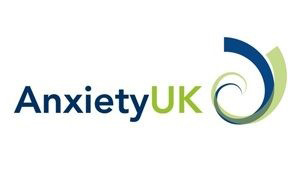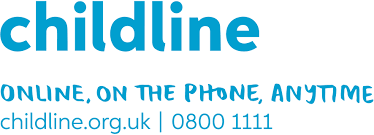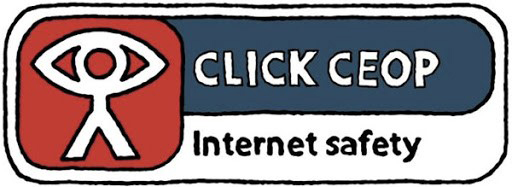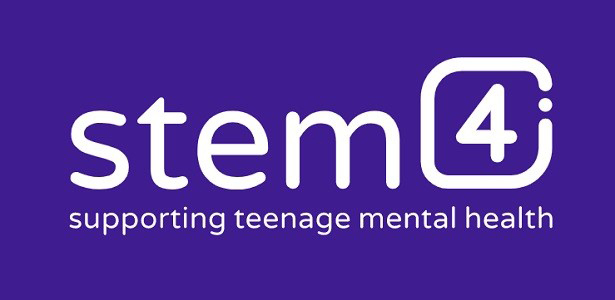Pastoral & Safeguarding
Welcome to the Pastoral and Safeguarding section. We hope you will find lots of relevant information within these pages.
If you have any questions then please contact Jon Mutton, Deputy Head Pastoral and Wellbeing, on jbm@ampleforth.org.uk or Alastair Dunn, Designated Safeguarding Lead on ajd@ampleforth.org.uk
Safeguarding
Safeguarding and promoting the welfare of children is everyone’s responsibility. Everyone who comes into contact with children and their families and carers has a role to play in safeguarding children. At Ampleforth the safeguarding policies and procedures set out clear expectations and processes for staff, volunteers and visitors to follow. Up to date posters are displayed around the schools of the staff who have Designated Safeguarding roles. These are the people you must report to without delay if you see or hear anything that indicates that abuse has been or is taking place.
DESIGNATED SAFEGUARDING LEAD
Alastair Dunn: 01439 766077 or 07896 006862 - ajd@ampleforth.org.uk
DEPUTY DESIGNATED SAFEGUARDING LEADS
Angela Carey: 01439 741117 or 07866 797326 - alc@ampleforth.org.uk
Jon Mutton: 01439 766434 or 07780 956368 - jbm@ampleforth.org.uk
Catherine Skinner: 01439 741114 or 07866 127228 - crs@ampleforth.org.uk
Miriam Cook: 01439 741116 or 07581 044842 - mcco@ampleforth.org.uk
SAFEGUARDING CHARTER SECTION 6
Good safeguarding requires effective communication Information must be communicated to those who have responsibility for different aspects of safeguarding across the Ampleforth site and who must make decisions in that regard.
Parents: If you need the College to support you, please contact your son or daughter’s Housemistress or Housemaster to make us aware of any issues, so that we can work together with you.
Safeguarding and promoting the welfare of children is everyone’s responsibility.
Guidance on Parties
We recognise that parents are often faced with tough decisions about teenage parties. Parties are a part of growing up, they are an opportunity for young people to develop friendships, practise their social skills and a chance to have fun with their friends in a relaxed environment. The benefits of a good party can be considerable. However, when a party is not appropriately supervised, there can be potentially serious safeguarding consequences. The Everyone’s Invited website details a very large number of cases where young people – mostly girls – have been subjected to rape and other sexual assaults at parties hosted in parental homes. The effects of such incidents on anyone involved cannot be underestimated, and the resulting trauma for victims can be life-changing.
No parent wants their child to be unsafe and so negotiating your way around the teenage party scene can often be a challenge. We hope that the guidance below, already requested by a number of parents, will serve as useful advice that all our parents will adopt, thereby ensuring a degree of parity and understanding between our parents as a whole. As parents you have to make difficult decisions and, although they might not articulate it at the time, young people do actually appreciate boundaries.
We all have a duty of care to educate our children about the various issues associated with growing up such as alcohol and drugs and sex. The College takes a proactive stance on this through our wellbeing and Christian Living curriculum which is supported by a variety of talks and workshops by visiting speakers. Parents also should be openly talking to their children in an age-appropriate way about such topics and should remember that, just as teachers are role models for young people, so are they. Children will mirror our own attitudes towards alcohol, how much we drink, and what we say about it. Do consider carefully how to educate your child with regards safe attitudes towards drinking and make sure that they are aware of the risks – physical, psychological and legal. Keep communicating with them openly so that they are encouraged to turn to you with their questions and, more importantly, when they might need some help.
Growing up can be a challenging time. Young people are dealing with a lot of changes in their lives; physically, emotionally, mentally and sexually. They're experiencing a massive surge of hormones and brain changes, expressing their need for a level of autonomy and control in their lives, which can appear as if they are having a personality change. Always keep the lines of communication open; ask them what's going on in their world and how they are coping with all these changes - this is often not straightforward in the teenage years.
Please do note that whilst we are issuing this guidance to all families, Ampleforth College cannot be held responsible for parties that are organised and take place outside of the College.
Jon Mutton, September 21
Tips for hosting a party in your home
Take your time
- Don’t feel you have to answer the “can I have a party?” question immediately; have a conversation with your child about where, when, etc…
- Look at the viability of dates with them and then take a few days to think it through.
Plan ahead, be prepared to negotiate and compromise within reason
- Ask your child to plan the party in great detail (including numbers, food, gate crashers, invitations, estimated cost) and go through their plans with you. Set clear rules about advertising the party on social media.
- At the same time, make your own plan which is as conservative as you can make it and then you can negotiate and make compromises to meet them half-way.
- Set ground rules with your child. This might include areas of the house which might be out of bounds and whether smoking or vaping should be allowed (we advise not, because illegal drugs such as cannabis could be brought in).
Alcohol guidance
- NHS guidance, (which can be found here) in line with advice form the UK Chief Medical Officer, highlights that:
- If children do drink alcohol, they should not do so until they're at least 15 years old.
- If 15 to 17 year olds drink alcohol, it should be rarely, and never more than once a week. They should always be supervised by a parent or carer.
- If 15 to 17 year olds drink alcohol, they should never exceed the recommended adult weekly limit (14 units of alcohol). 1 unit of alcohol is about half a pint of normal-strength beer or a single measure (25ml) of spirits. A small glass of wine equals 1.5 units of alcohol.
- If your child intends to drink alcohol, using positive practices such as incentives, setting limits, agreeing on specific boundaries, and offering advice can help.
- Make it clear in the invitation that you will provide all drinks on the night of the party - spirits can sometimes be brought in water bottles so you need to look out for this.
- As party-comers arrive, meet and greet them at the door and remove any alcohol they have brought. If you do collect any alcohol, inform them that it can be collected by their parents the following day. It is your right to remove alcohol from anyone who comes - it is your house!
- Young people might bring “gifts” for the host, which are wrapped up bottles of alcohol. Take all presents at the door and explain that they will opened as a family tomorrow. Thank them for being so kind and generous!
- Regularly scan the house; some common places that young people put alcohol in a party include dishwashers, fridges, washing machines, ovens. Scan the garden too. If you find something, remove it and don’t make a big deal.
- If someone is sick, tell their parents. If they are over 18, you might decide not to, however if you are concerned about their health and well-being it is better to err on the side of caution. If someone is very ill, you may want to get their parents to pick them up straightaway, or even call paramedics and alert the parents.
Be in subtle attendance
- By law, parents should remember that they always have a duty of care to all young people who are in their home. Tell your children this and cite the story of the parent who was sentenced to 4 years imprisonment for manslaughter; he left a party unattended and one of his daughters’ friends died. He was held responsible. If you have a DBS check you can explain to your child that if anything did go wrong, you may end up with a record on your DBS report and what the consequences of that might be.
- It is a good idea to have four parents (or other adults) in attendance in case anything goes wrong. Think carefully about whether you and the other adults will drink alcohol; you might need to drive in an emergency.
- Befriend the sensible young people at the party and quietly say “Just let me know if……” Step back and let them enjoy themselves, but regularly take a wander through the house / garden (if you are allowing people into the garden) and make conversation with them.
- Think carefully about which areas of the house / garden are “off limits”. You do not want under-age sex happening in your home - you could be held legally responsible.
Party invitations
- Always make sure that you have a list of who is invited and insist on a no-invitation, no entry policy to avoid gate crashers. Think carefully about how you will organise the RSVPs to ensure you know exactly how many are attending.
- Have a clear start and finish time – this will ensure a degree of control and a clear pick-up time for parents.
- Ensure on an RSVP policy so you are fully aware of numbers for catering purposes. Think carefully about the menu – food that the young people will eat and enjoy. Some will deliberately choose not to eat as they will feel it will make them get drunk more quickly; a mixture of nibbles and substantial food is a good idea.
- Include your contact details so that parents can contact you with any queries.
- Beware social media advertising of a party – the whole world could turn up thinking an invite was implied.
There are lots of positive aspects to having a party in your own home – and it should be fun for all, including you as the hosts - but it is important to remember these are young people who need the support and boundaries of adults being present to ensure their safety and the safety of your home.
Tips for responding to a party invitation
If your child receives a party invitation work through the following points.
Contact the parents
- Double check that your child has actually been invited.
- Ask if you can help.
- Check to see if the parents will be in attendance. If the answer is no, consider whether your child should go.
- Check the boundaries that have been set about alcohol.
- Ask about whether it is a sleep-over; if it is, what will the arrangements be? Is it a mixed gender sleep over? Do they need to stay the night?
Have consistency with other parents of your child’s friends
- Do talk to each other and decide, within reason, to be supportive of each others’ decisions.
Discuss travel to and from the party
- This should be age appropriate e.g. 13/14 year olds should be taken to and collected from the party. 15/16 year olds are beginning to need more autonomy and to develop higher levels of personal safety skills. You may be happy for them to go by public transport but always collect them. 16 years and above are more mature so, within reason, may use public transport to travel there and back or get a cab home.
- If they are travelling independently ask for a text when they arrive at the party and a text when they leave – for their own personal safety reasons.
Emergency contact details
- Leave contact numbers for the parents, particularly if you are out – not just your mobile but if possible the number of where you are going to be in case of an emergency and you don’t have a signal.
Emergency codes
- Organise an emergency code with your child - if there is a problem at the party (or when they are out generally) – they send you a pre-arranged text e.g. ‘’there are no burgers’’ and have a prior agreement that whatever you are doing you will come and collect them.
Limits
- Do have a limit with regards the number of parties. Teenagers could be invited to lots. Define how many late nights at weekends you think is acceptable (and will suit your child).
- Set times for what time you expect your child home. Clear boundaries work best.
General
- If your child is invited to an organised party at a hotel or club, check all the details above. If your child has been invited to a festival then look up the details; check their drugs screening policy, their attitude to drugs, security, and what age group the festival/gathering is aimed at - and speak to the organisers if you are concerned
- Keep the lines of communication open with your child. Involve them in discussions and allow them to take gradual ownership of their decision making.
- If you have a child not interested in parties don’t worry! They will get there in their own time; don’t force them to go!
- Get to know your child’s friends and their parents. Ensure that your child knows that you are interested in their lives.
Some possible scenarios
Scenario 1: Your child arrives home having had a lot to drink
- Respond (ie recognise that you know they have been drinking) but do NOT react (Breathe, count to 10 – use strategies to ensure you remain calm).
- Put them to bed and take care of them; their safety is the most important priority.
- Discuss the incident the next day, remaining calm throughout and ensure it is a dialogue, not an argument. Think about what you want to say beforehand.
- Make clear that you were concerned; ask them to see the situation through “your lens”. Focus on what they did wrong (e.g. drank alcohol / broke a curfew / didn’t let you know about a change of plan) and keep emotions out of it.
- Think carefully about any sanction and ensure consistency (especially between siblings).
- Use it as a learning experience.
- Keep talking: once you've had a discussion, it's important to have another. Always be willing to discuss alcohol and any concerns you or they may have. Check what teenagers think you have said - sometimes what teenagers have "heard" was not the message the parent wanted to say. You could ask "So what do you think I mean?" or "What do you think my opinion would be?"
Scenario 2: You see inappropriate photos / drunken photos on your child’s (or their friend’s) social media account
- If it happened at someone else’s house / party, contact the parents (they need to be aware – imagine how you would feel).
- Without confrontation, highlight who might be looking at the photos (discuss about job applications/university applications).
- Encourage the photo to be removed (the College can help you with this if you/your child doesn’t know how to go about it).
- Use it as a learning experience and keep an open dialogue about social media.
Scenario 3: A sexual assault occurs at your party
- Your immediate duty is to safeguard the victim from further harm and to assess whether they need medical assistance.
- The victim should be kept separate from the alleged perpetrator/s by a responsible adult.
- You should contact the police promptly on 999 and follow their advice.
- The victim should not be left alone, as understandably they will need support.
- Nobody should be interviewed other than by the police, but any disclosure from a victim should be noted down by a responsible adult, and this information should be handed over to the police as soon as possible.
- Once you have notified the police, please also notify the College’s DSL, Dr Alastair Dunn on 07896 006 862 or via email ajd@ampleforth.org.uk
Scenario 4: You discover illegal substances at your party
- If you discover illegal substances at your party, call the police and follow their advice.
Online Safety: A Guide for Parents
Online safety is an essential aspect of safeguarding young people, during term-time and in the holidays. The purpose of this guide is to provide information regarding what we do as a College to safeguard your son or daughter online, and advice on steps that you and they can do to keep themselves safe, and what to do if things go wrong.
The College has several duties in terms of safeguarding, and these are required of all schools. These fall into three main categories:
-Educating young people in the safe use of online technology
-Ensuring that sufficient policies and procedures are in place to maintain online safety
-Responding appropriately when things go wrong.
Educating young people in the safe use of online technology
The College has a duty to educate students to develop the skills and confidence to use technology safely. As a result, students should be able to:
• Evaluate what they see online
• Recognise techniques used for persuasion or manipulation
• Identify online risks
• Understand what positive and negative online behaviour looks like and the impacts these can have
• Know when and how to seek support
The College fulfils this through online safety talks to each year group, delivered during the school year, and also via the Christian Living Programme.
In particular, the College encourages students to be aware of four categories of online risk: “content” – the risk of encountering harmful content; “contact” – the risk of harmful interaction with others; “conduct” – the role of the student’s own behaviour in keeping themselves safe; and “commerce” – the financial risks from fraud, gambling and gaming.
There are many online resources available to support students and families with online safety. The list below includes some of the most widely used:
Internet Matters https://www.internetmatters.org/
A large site with comprehensive, age-nuanced guidance on settings and safety both for home and personal devices
Digital Awareness UK https://www.digitalawarenessuk.com/resources
This includes excellent resources on the safe use of apps and phones, including videos designed for teenagers.
NSPCC https://www.nspcc.org.uk/keeping-children-safe/
This site includes guidance on how to set parental controls.
BBC Own IT https://www.bbc.com/ownit
Childline https://www.childline.org.uk/info-advice/bullying-abuse-safety/online-mobile-safety/
The following link from an excellent internet safety organisation called Internet Matters gives tips on how parents can restrict usage on a range of different gadgets and phones: Parental Controls Android Devices | Internet Matters. It is also important to note that parents are able to contact the mobile phone network that their child is with and discuss safety mechanisms and controls with them.
This link from the UK Safer Internet Centre gives advice on how parents can set up filters on home internet devices to prevent age inappropriate content from being accessed: Parental controls offered by your home internet provider - UK Safer Internet Centre
Advice for parents on safety aspects for key social media platforms (including parent guides) can be accessed here: Social media guides - UK Safer Internet Centre
Childnet.com provides guides on how to talk to children about the online world and offers sample family agreements which may be of use as well as an online safety resource booklet for parents and carers.
Ensuring that sufficient policies and procedures are in place to maintain online safety
The Designated Safeguarding Lead (DSL), Dr Alastair Dunn, has overall responsibility for online safety, and he liaises closely with the IT network manager.
The College has policies and procedures in place to promote online safety. The most important of these is The Online Safety Policy. It identifies areas of potential risk, such as online sexual abuse and harassment, including between children, and other digitally-enabled forms of harmful behaviour, such as the sharing of nude and semi-nude images. It also notes the risks of digitally-enabled grooming in preparation for Child Criminal Exploitation (CCE) and Child Sexual Exploitation (CSE). The Policy also details the steps taken to maintain online safety, including education and training of students and staff.
Additionally, the College also has a student Mobile Phone Policy that defines where, when and under what circumstances the use of a mobile phone is permitted. Aspects of the policy apply in different ways for each year group, taking account of changing levels of maturity.
All students and staff are also required to read and sign an Acceptable Use Policy (AUP). These documents emphasize that the safe use of technology is an integral feature of the College’s safeguarding culture. These make clear the Colleges expectations for behaviour in several areas including: appropriate communication; behaviour while using the college network; appropriate use of social media and networking apps; and the College’s intolerance of all forms Cyber-bullying and online harassment.
The College provides access to its network to students, using both College and personal devices, for the purposes of education, communication and (within appropriate boundaries) leisure. The use of all devices connected to the College network, whether personal or College-owned, is monitored using Sophos Fastvue software. This blocks access to several categories of website, and generates an automatic alert to the safeguarding team, either when an attempt is made to access these sites, or where a particular search term has been submitted. Restricted categories include those relating to:
-Inappropriate sexual content
-Extremism
-Self-harm and suicide
-Illegal substances and other criminal activity
Alerts are checked by the safeguarding team, and depending on the level and nature of the concern, this will be followed up in a variety of ways with the individual. Where unlawful activity is suspected, the College has a duty to report this to the police and, if it involves a person aged under 18, to Local Authority Children’s Social Care.
Where a concern relates to potential extremism, the College has a duty to follow the Prevent guidelines, which includes making a report using the local Channel referral procedures. The College DSL is also the Prevent Officer.
The Wellbeing Hub

To find out more about the Wellbeing Hub here is a short introduction from the founder, Alicia Drummond:
Access to the Wellbeing Hub is strictly limited to the families of Ampleforth College.
We have purchased a set number of logins for the number of families in our community, and we have taken into account those who might need more than one link.
Sharing the link outside of this private portal is strictly prohibited as detailed in Clause 6.1 of the Teen Tips Terms & Conditions, which you will be asked to agree to when you register.
To Register for The Wellbeing Hub
1) Click here to register
2) Register yourself
3) Save the Wellbeing Hub to Your Phone’s Home Screen – so you can easily find it when you need it - It's very simple to save The Wellbeing Hub to the home screen of your phone - if you don't know how, just follow the steps shown in the visual guide linked here. Once you’ve registered to The Wellbeing Hub, there’s no need to come back through the portal, you can simply login to the web app.
If you have any specific queries about access, please contact the team at hub@teentips.com.
Resources
Advice and support for young people. Mental health support for young people.
Advice and support to keep children safe from sexual abuse and grooming online.
Information and support in understanding the digital world,
to help parents raise resilient children.

A UK national registered charity formed in 1970 for those affected by anxiety disorders. It is a user-led organisation, run by sufferers and ex-sufferers of anxiety disorders.
A charity that promotes positive mental health in teenagers and those who support them including their families and carers, education professionals, as well as school nurses and GPs through the provision of mental health education, resilience strategies and early intervention.
A charity that promotes positive mental health in teenagers and those who support them including their families and carers, education professionals, as well as school nurses and GPs through the provision of mental health education, resilience strategies and early intervention.









